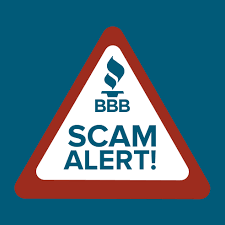
NORTHERN INDIANA – Better Business Bureau serving Northern Indiana warns of an ongoing Facebook sweepstakes scam targeting elderly victims after an Indiana man recently reported losing $10,000.
The man says he received a Facebook message from a woman claiming to work for the CEO of Facebook, informing him that he was one of 10 winners chosen to receive $66,000. The scammer offered up pictures and details about her employment at Facebook, convincing the victim to send cash via USPS to cover fees in order to receive his prize.
Once the cash was received, the scammer would report an issue that required the man to send more cash; this continued for at least a month, until he says he had mailed the scammer a total of $10,000 in cash.
Finally, when the scammers claimed the money was stolen in route and demanded he send an extra $8,000, the victim informed the woman he would not send any more money. He said he still continues to receive calls and messages from the woman on Facebook Messenger but he does not respond.
According to new research from Better Business Bureau,® Sweepstakes and lottery scams resulted in higher financial losses during the COVID-19 pandemic compared to the previous three years, particularly for older people. BBB warns consumers never to pay money to claim a prize. If anyone asks for money before delivering a prize, it is likely a scam.
“This research highlights how these scams work and the importance of educating older adults and other people who may be susceptible to these scams. Because these scammers are so good at what they do, anyone could be a victim,” said Marjorie Stephens, President and CEO of BBB Serving Northern Indiana.
People over the age of 55 continue to be the primary target of sweepstakes, lottery, and prize scams, representing 72% of fraud reports for this type of scam received by BBB Scam Tracker during the last three years. Of the older consumers who were targeted, 91 percent reported that they lost money. Adults over 55 lost an average of $978 while those 18-54 lost an average of $279, according to Scam Tracker reports.
The confinement and isolation many older people experienced during COVID-19 may have helped fuel the increase in losses. Other factors that may contribute to some older people’s particular vulnerability include mental decline and relative financial stability, as reported in BBB’s 2018 study on the same topic.
According to BBB Scam Tracker data, sweepstakes scammers reach out through a variety of channels: phone calls, email, social media, notices in the mail, and text messages. They may impersonate well-known sweepstakes such as Publishers Clearing House or a state or provincial lottery. The “winner” is told to pay taxes or fees before the prize can be awarded.

“Any time you’re asked to send money in order to receive a prize, that’s a red flag” said Marjorie Stephens, President and CEO of the Better Business Bureau serving Northern Indiana. “No legitimate giveaway will require you to send money in order to receive the prize that you won.”
In reality, the prize does not exist, something the people may not realize before paying thousands of dollars that cannot be recouped. However, the harm suffered by lottery fraud victims can far exceed the loss of that money. The losses can put severe strains on family trust, and victims have even committed suicide. In addition, repeat victims may have difficulty ending their involvement in a lottery scam, and they may become money mules who receive and forward money from other lottery fraud victims.
How to tell fake sweepstakes and lottery offers from real ones:
- True lotteries or sweepstakes don’t ask for money. If someone wants money for taxes, themselves, or a third party, they are most likely crooks.
- You have to enter to win. To win a lottery, you must buy a lottery ticket. To win a sweepstakes or prize, you must have entered first. If you can’t remember doing so, that’s a red flag.
- Call the sweepstakes company directly to see if you won. Publishers Clearing House (PCH) does not call people in advance to tell them they’ve won. Report PCH imposters on their website. Check to see if you have actually won at 800-392-4190.
- Check to see if you won a lottery. If you are told you’ve won a lottery, call the North American Association of State and Provincial Lotteries at 440-361-7962 or your local state lottery agency to confirm it.
- Do an internet search of the company, name, or phone number of the person who contacted you. Check BBB Scam Tracker to see if other consumers have had similar experiences.
- Law enforcement officials do not call and award prizes. Verify the identity of the caller and do not send money until you do.
- Talk to a trusted family member or your bank. They may be able to help. You also can call your local BBB office for help in identifying a scam.
If you think you have been a target of lottery/sweepstakes fraud, file a report with:
- BBB Scam Tracker, or contact your local BBB
- Federal Trade Commission (FTC), or call 877-FTC-Help
- U.S. Postal Inspection Service has experts to help with chronic sweepstakes scam victims and can be reached at 1-877-876-2455 or uspis.gov
- Senate Subcommittee on Aging Fraud Hotline: call 1-855-303-9470; or aging.senate.gov/fraud-hotline to leave an online request for someone to contact you
- Adult Protective Services: local help at elderjustice.gov for vulnerable or older adult victims
- Canadian Anti Fraud Centre: toll free from the US at 1-888-495-8501
- Western Union: 1-800-448-1492; file a complaint at westernunion.com
- MoneyGram: 1-800-926-9400; report a problem at moneygram.com
- Green Dot: 1-866-795-7597; contact greendot.com
- Facebook: log reports of log reports of hacked or fake profiles.
If you spot a scam, whether you’ve lost money or not, report it to BBB’s Scam Tracker at BBB.org/ScamTracker and the FTC at ReportFraud.ftc.gov. Your story can help other consumers avoid similar scams.
About BBB
BBB is a nonprofit, business-supported organization that sets and upholds high standards for fair and honest business behavior. BBB services to consumers are free. BBB provides objective advice to businesses and consumers, BBB Business Profiles on millions of companies, charity reviews, dispute resolution services, scam alerts, and educational information on topics affecting marketplace trust. Visit bbb.org for more information.



